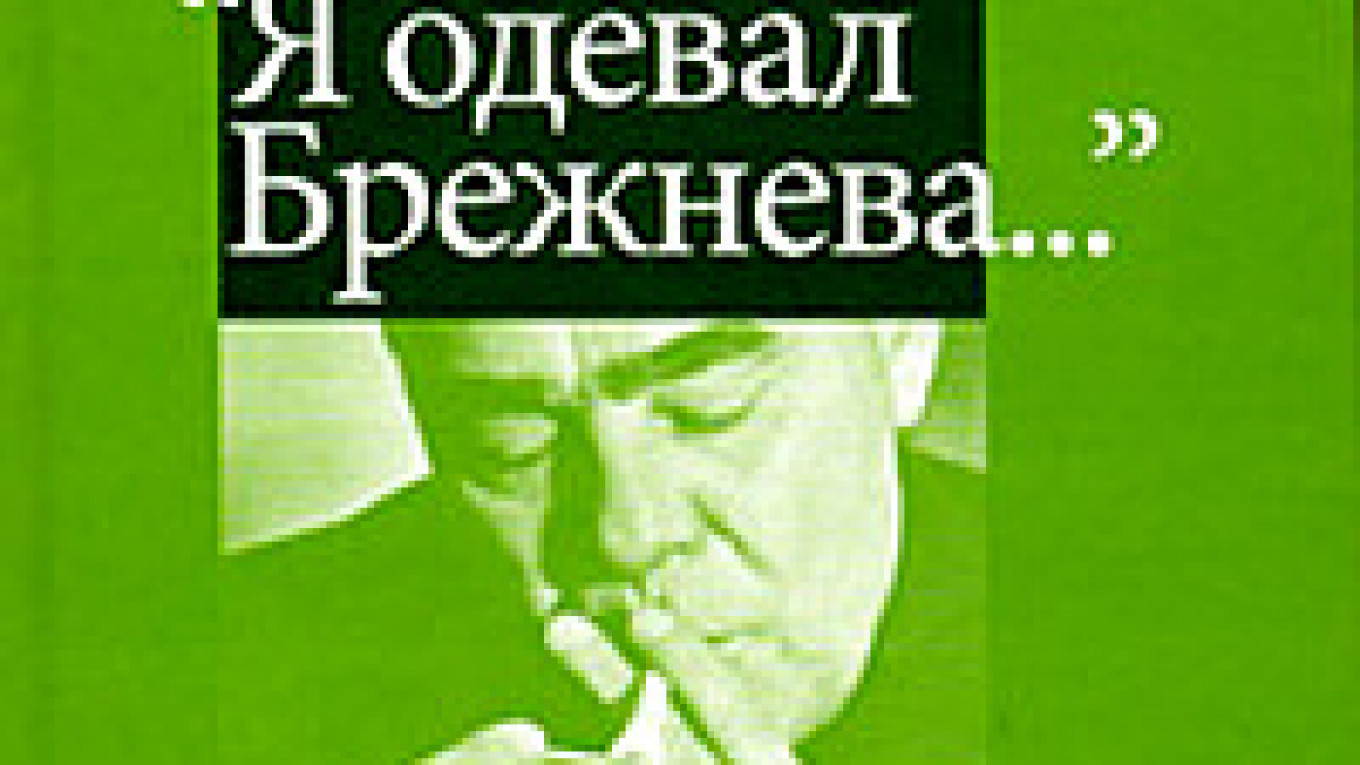Hours later, he was on a plane to Moscow, and then on another plane to Brezhnev's Crimean dacha, where it turned out that a pair of summer linen trousers had shrunk. He gave them a guard and flew back to Moscow to make another pair, to be couriered down to the Soviet leader.
The situation was all in a day's work for Igmand, who worked as Brezhnev's bespoke tailor for close to a decade up until his death. He tells the story and many others in "I Dressed Brezhnev," written by journalist Anastasia Yushkova, which came out last month.
Sadly, Igmand died in 2006 and isn't around to enjoy a mini-revival sparked by the book, which has been lapped up by the nostalgic Russian press.
Igmand, as head of men's fashion at the Moscow Dom Modelei, or House of Models, was once in charge of how Soviet men dressed, heading up the design of new lines of clothes that were produced by factories all over the Soviet Union.
The work took him around the world to demonstrate Soviet fashion ?€” although the designs he showed had little in common with the poor-quality clothes people would eventually see in the shops ?€” and he visited Japan, France and the United States.
Igmand headed Dom Modelei on Kuznetsky Most, which survived the break-up of the Soviet Union and only closed in 2003. It is now occupied by the designer brand store Podium.
"I met him in a small atelier," Yushkova said of their first meeting in 2004. "It seemed to me that he was an extraordinarily nice man. He looked so noble in the tiny atelier. I realized that he was much bigger than this place."
She met him once or twice a week for several months, and he told her stories but, she said, he remained a private man and never invited her to his apartment.
Igmand was more interested in telling funny stories about his career, Yushkova said, than talking about his work as a designer. He hadn't kept an archive, he told her, although his wife later gave photographs for the book that show him with Pierre Cardin and Russian uber-designer Slava Zaitsev.
In the book, Igmand tells how he was first invited to the Kremlin, unaware that his latest client was Brezhnev himself. He sweated as Brezhnev came into the room, but soon afterward was measuring the leader in his boxer shorts ?€” "very fine, imported ones that you could never find in the Soviet Union," he recalled.
A minister warned him never to say that he worked for Brezhnev, although he did tell his wife. Some might have guessed from the fact that he regularly received deliveries of Brezhnev's hunting trophies. "Sometimes we didn't know what to do with the gifts. Imagine getting 15 ducks at once," he remembered.
Igmand said Brezhnev misheard his surname and always called him Zigmund. He never corrected him. "Put yourself in his place at that time," Yushkova said of the awkward situation.
He talked with affection ?€” although not familiarity ?€” about the leader, who asked him about his living conditions and helped him get a better apartment.
Brezhnev had little idea of how people lived, he said. He recalled how the leader was once surprised to hear that there was no milk on store shelves and was quickly reassured by a minister on the telephone that the problem was solved.
Igmand had a less pleasant experience with later leaders.
Pavel Borodin invited him to work for Boris Yeltsin and even asked him to sign a contract but then never called back, he recalled.
Later Boris Berezovsky summoned him and asked him to make an evening suit for then-Prime Minister Vladimir Putin. Igmand took measurements and made the suit, but Putin never turned up to collect it.
"Alexander Igmand: I Dressed Brezhnev" by Anastasia Yushkova is published by Novoye Literaturnoye Obozreniye.
A Message from The Moscow Times:
Dear readers,
We are facing unprecedented challenges. Russia's Prosecutor General's Office has designated The Moscow Times as an "undesirable" organization, criminalizing our work and putting our staff at risk of prosecution. This follows our earlier unjust labeling as a "foreign agent."
These actions are direct attempts to silence independent journalism in Russia. The authorities claim our work "discredits the decisions of the Russian leadership." We see things differently: we strive to provide accurate, unbiased reporting on Russia.
We, the journalists of The Moscow Times, refuse to be silenced. But to continue our work, we need your help.
Your support, no matter how small, makes a world of difference. If you can, please support us monthly starting from just $2. It's quick to set up, and every contribution makes a significant impact.
By supporting The Moscow Times, you're defending open, independent journalism in the face of repression. Thank you for standing with us.
Remind me later.


